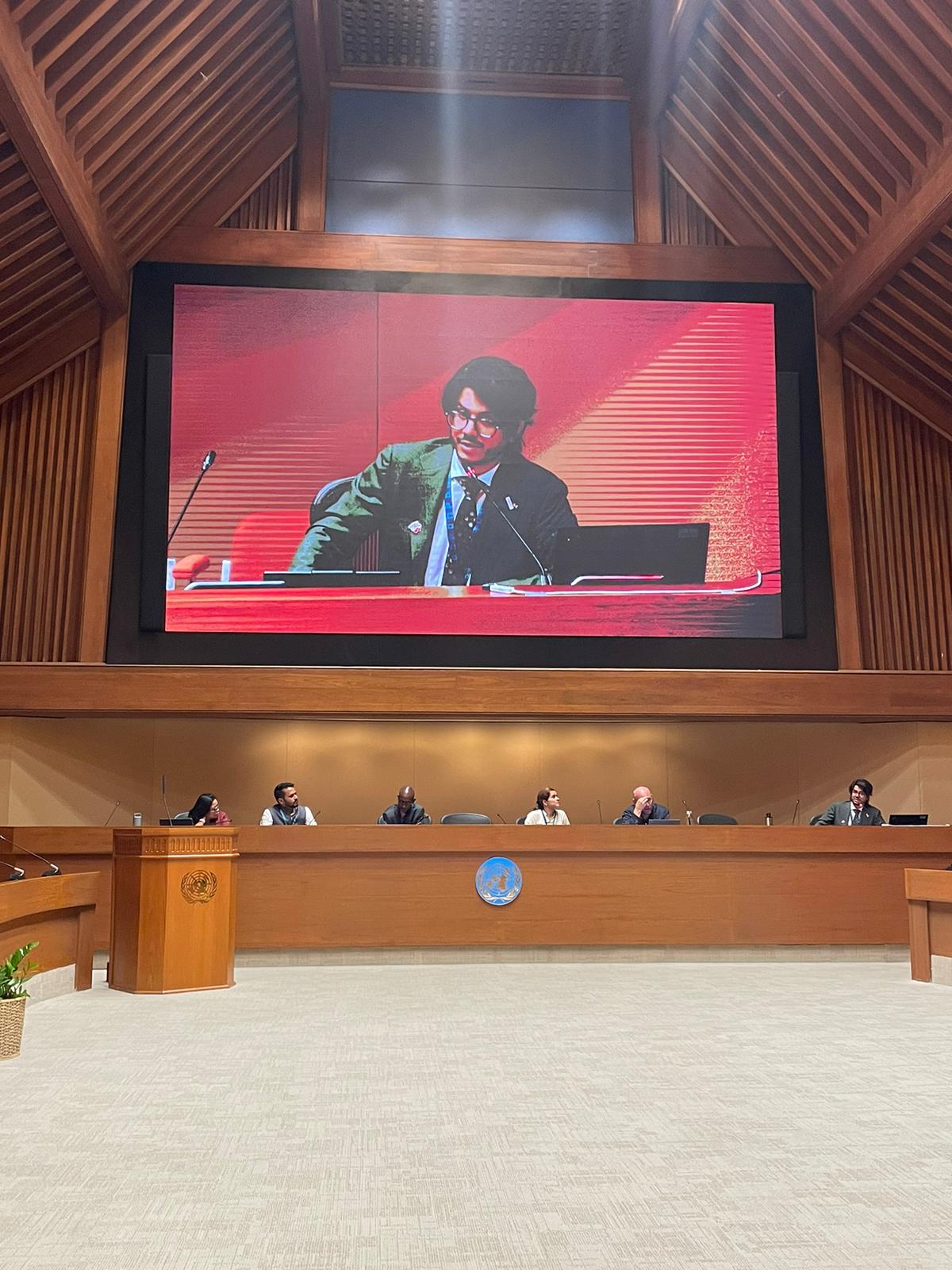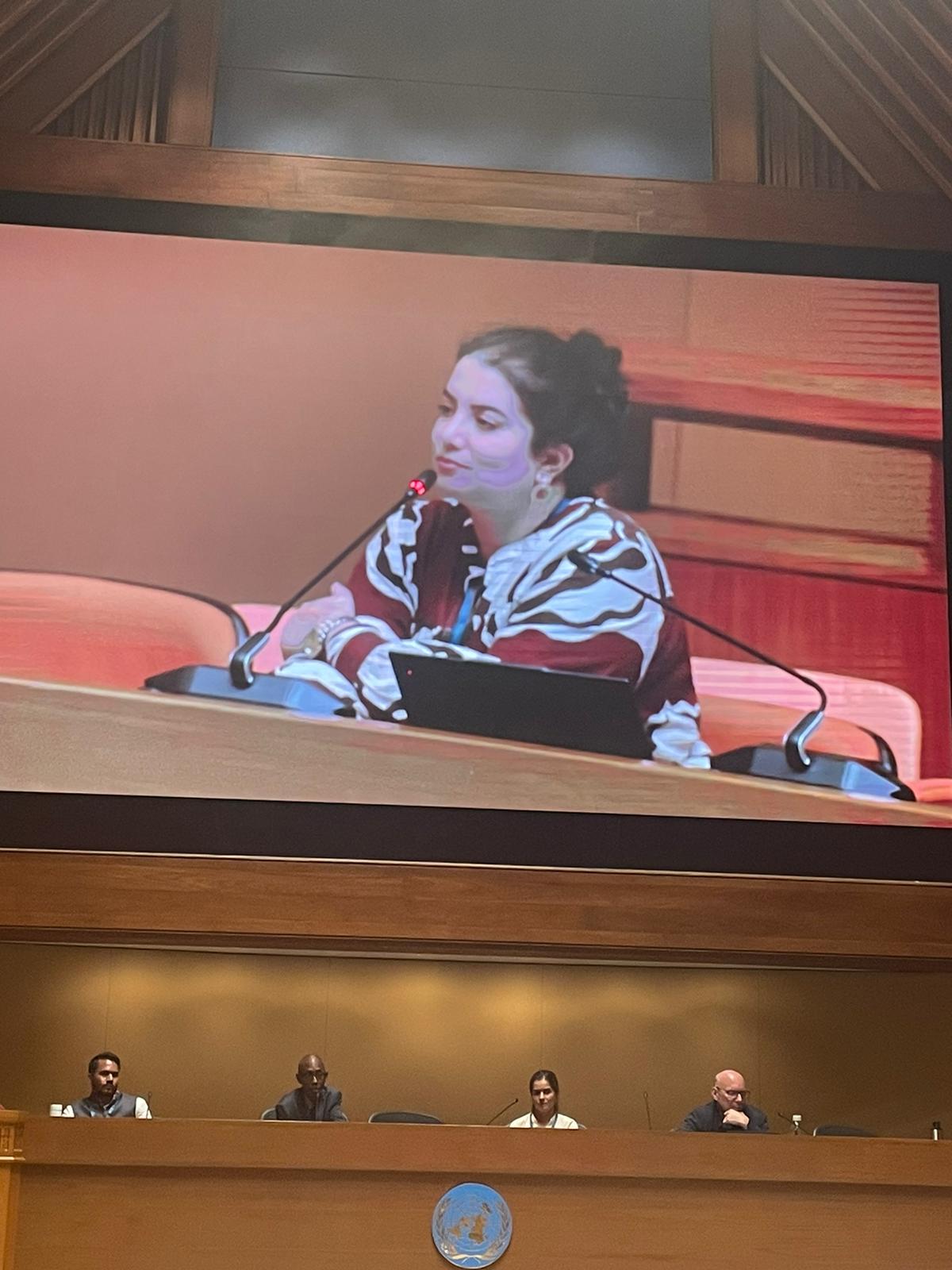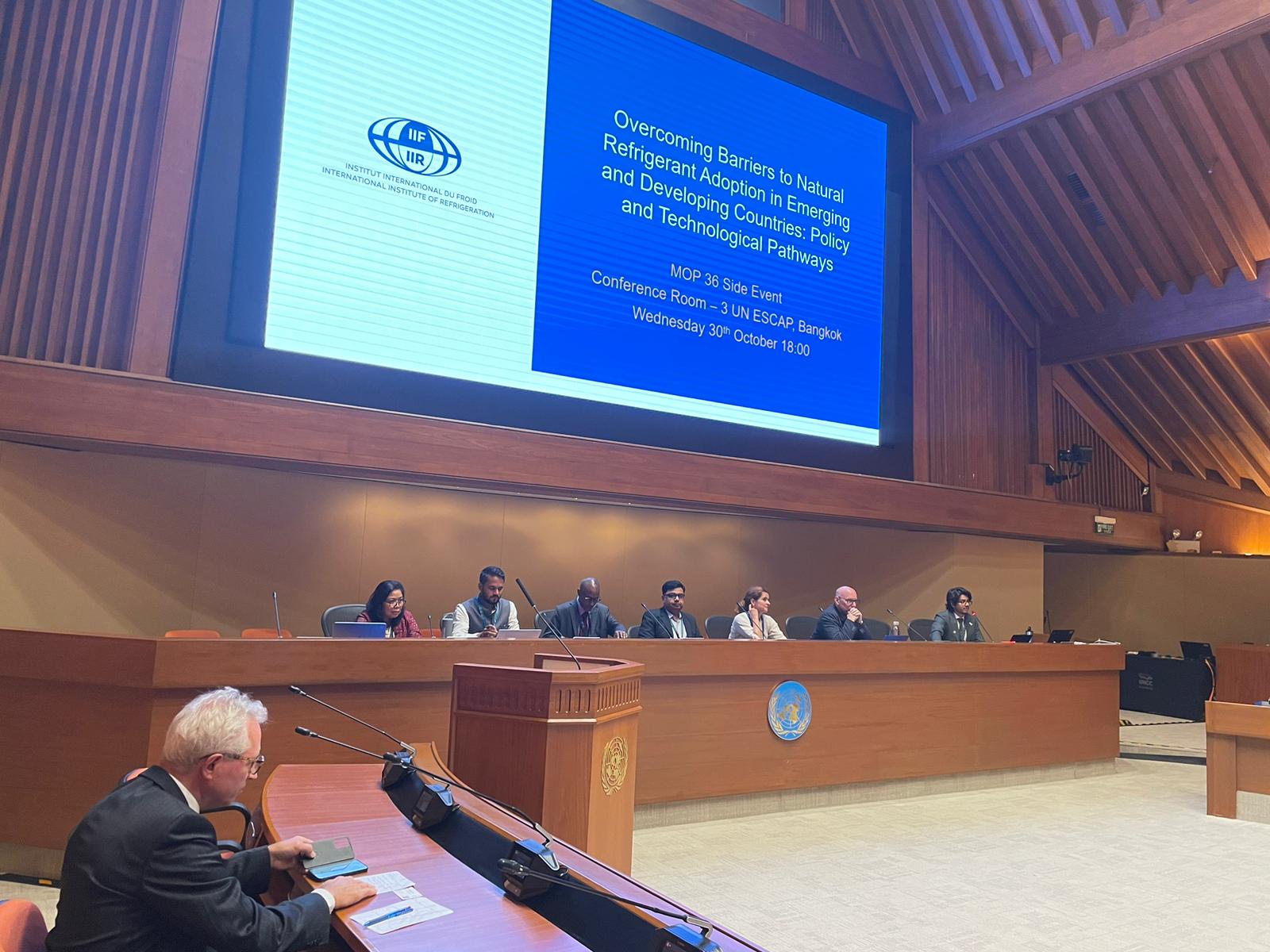Highlights from COP13/MOP36 – Day 3
The IIR concluded another successful side event on natural refrigerants at COP13/MOP36. Today's session brought together a diverse group of government representatives, industry leaders, and environmental experts to discuss pressing challenges and opportunities in adopting sustainable refrigerant solutions within emerging economies.
Bangkok, October 30, 2024 – The IIR hosted their second side event during COP13/MOP36 titled “Overcoming Barriers to Natural Refrigerant Adoption in Emerging and Developing Countries: Policy and Technological Pathways.”
The session brought together a diverse group of government representatives, industry leaders, and environmental experts to discuss pressing challenges and opportunities in adopting sustainable refrigerant solutions within emerging economies.
IIR Director General Yosr Allouche opened the event by outlining the IIR’s mission and highlighting the critical role of natural refrigerants in global climate goals. Her remarks set the stage for engaging presentations from leading experts who provided attendees with insights into both the current landscape and future possibilities for natural refrigerants. Björn Palm, member of the IIR Management Committee and Swedish delegate to the IIR, discussed Europe’s regulatory progress and the EU’s transition towards low-GWP refrigerants. Sonal Kumar, representing the Council on Energy, Environment, and Water (CEEW) in India, shared India’s journey toward lifecycle refrigerant management, underlining the importance of robust regulatory frameworks in advancing natural refrigerant technologies in developing nations.
A dynamic panel discussion moderated by Marco Duran (IIR), explored the unique challenges and opportunities present in specific regions. Panelists Ellen Michel (GIZ), Baba Dramé (Senegal), Bitul Zulhasini (Indonesia), Daniel Colbourne (Re-phridge and IIR) and Santosh Kumar Saini (AEEE) shared insights on their national approaches, emphasising the critical role of policies, technological advancements, and financing mechanisms in overcoming the hurdles to natural refrigerant adoption. The discussion revealed the need for targeted support in areas such as technician training, public awareness, and financial incentives to ensure an effective transition to sustainable cooling solutions.


The session concluded with a Q&A segment, where attendees posed questions on regulatory alignment, technology transfer, and the role of international cooperation in driving sustainable refrigerant adoption. In his closing remarks, Professor Björn Palm urged further collaborative action to advance climate goals. He highlighted the importance of events like this one in promoting shared learning and fostering partnerships to address climate challenges in the cooling sector.
With a full audience and valuable knowledge exchange, the IIR’s side event at COP13/MOP36 underscored the essential steps required to support developing countries in accelerating the transition to environmentally friendly refrigerants, contributing to a sustainable and resilient future on a global scale.
We extend our heartfelt thanks to all the speakers for their valuable contributions and insights during this side event!

